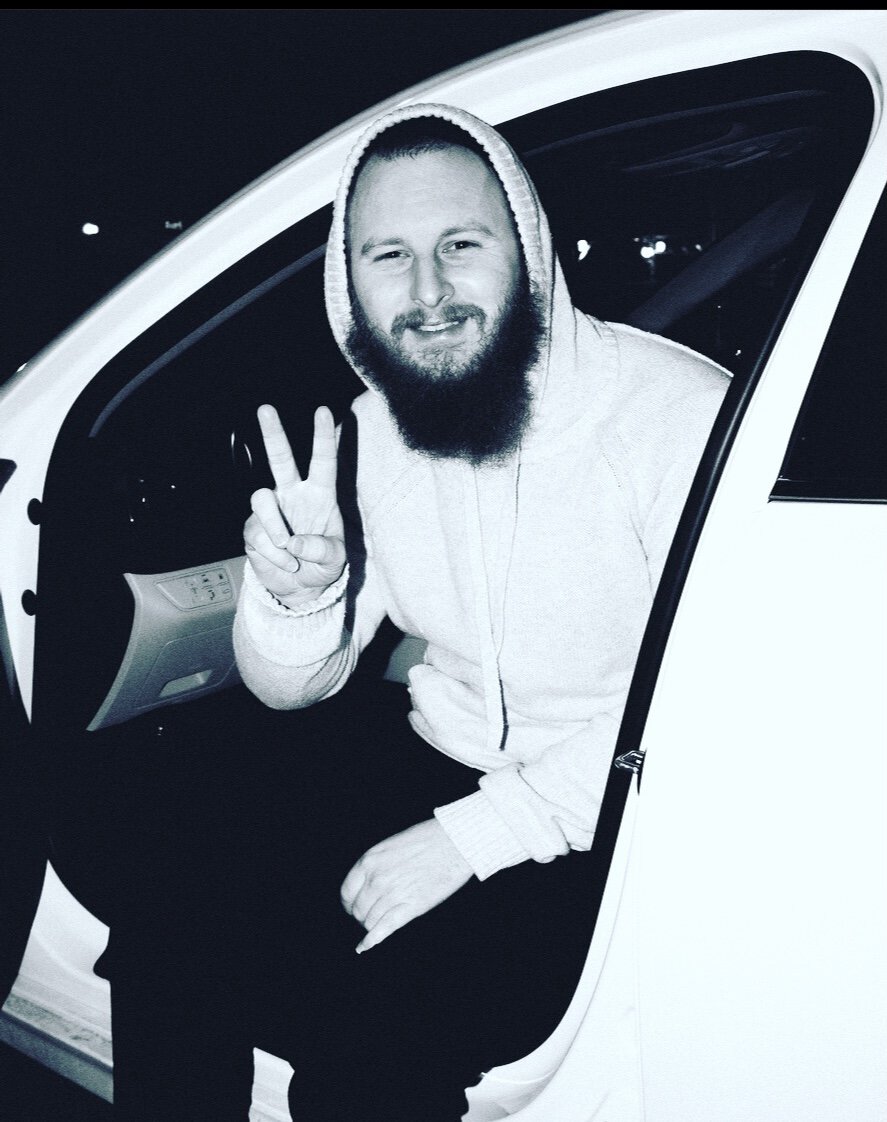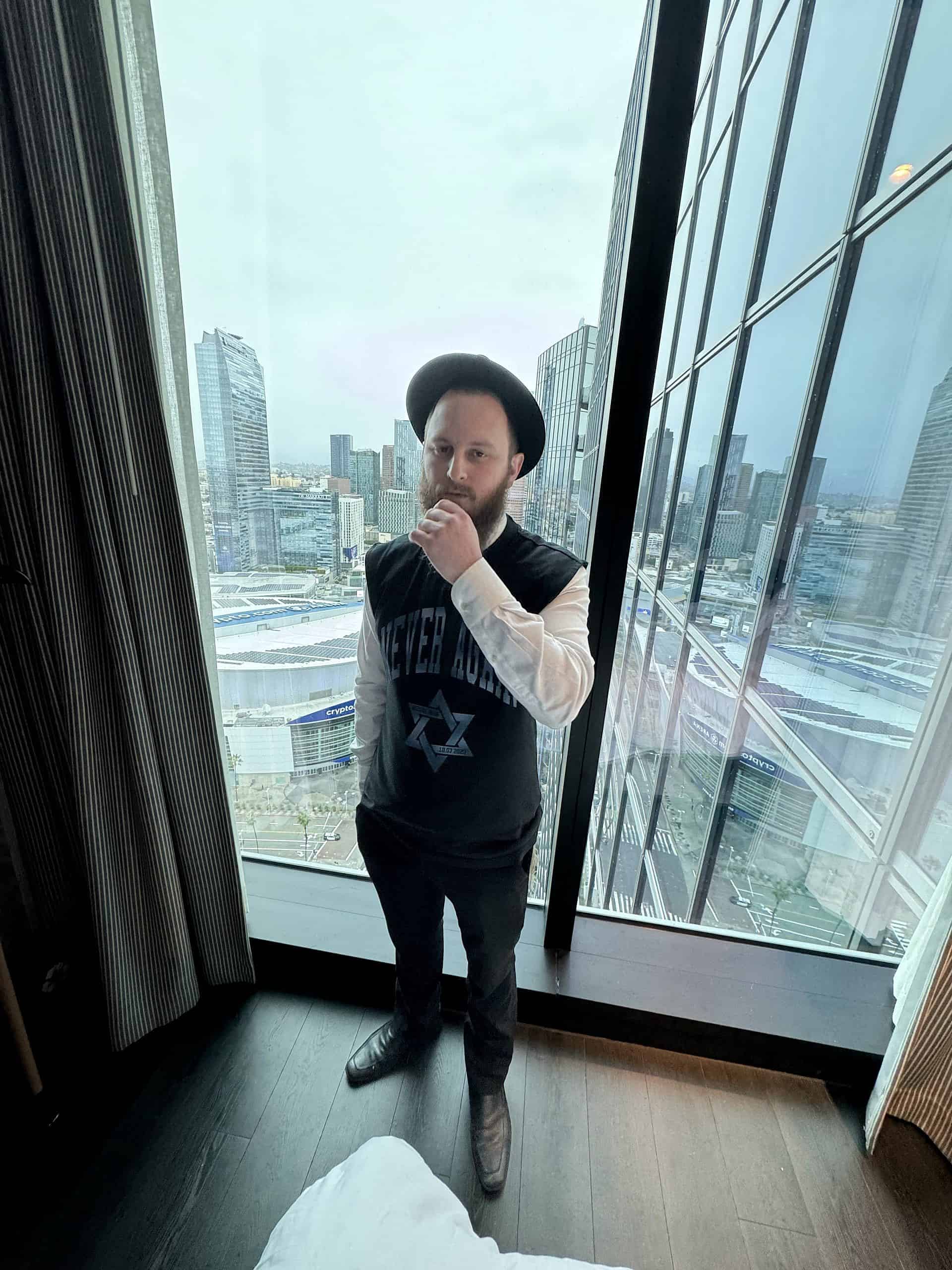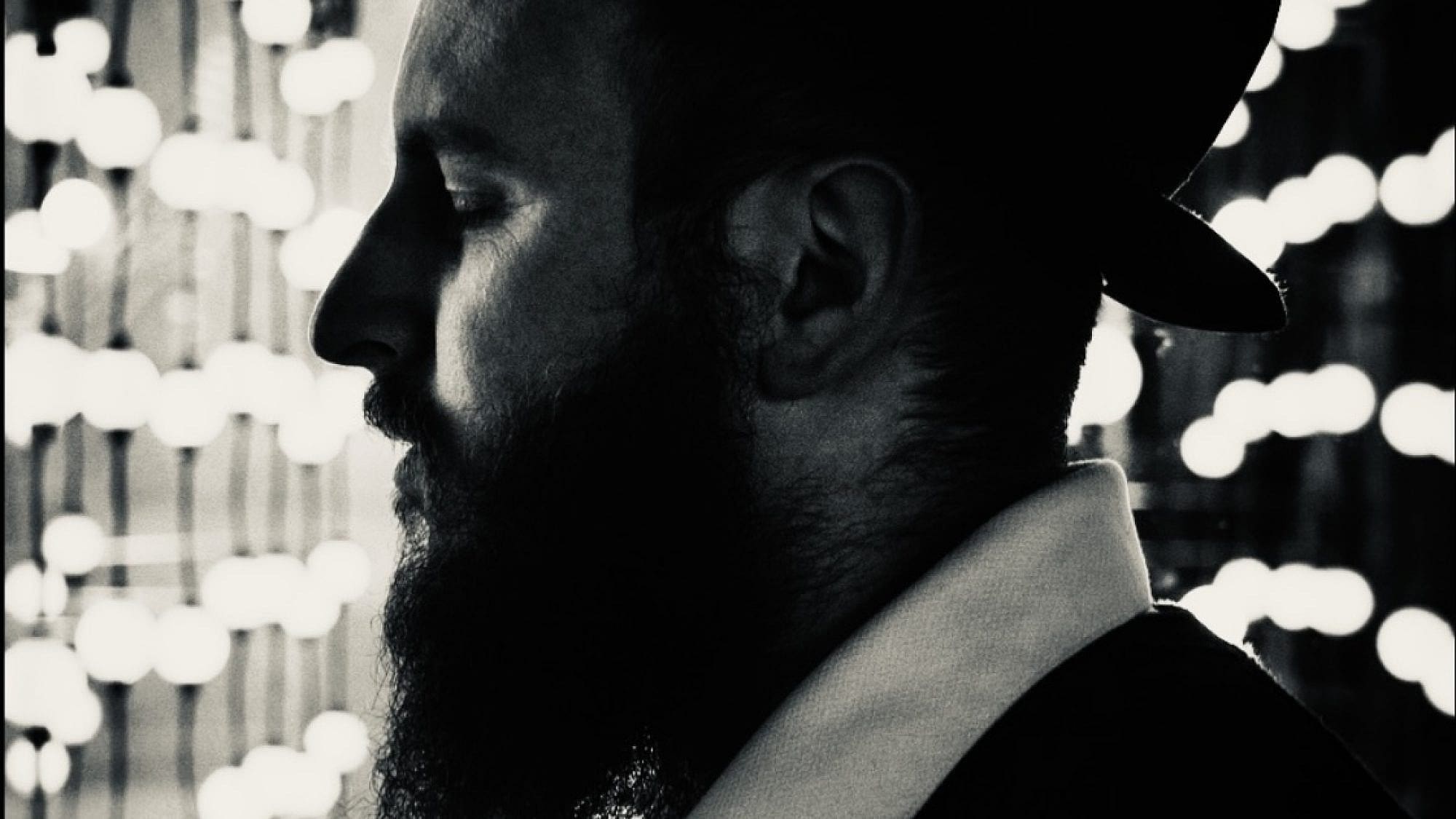Arap artist who turned around his hard-partying lifestyle after a near-death experience when he was a teenager and became a rabbi now sees surging success with his newest single.
Rabbi Moshe Reuven Sheradsky, 31, has hit the No. 1 spot on the Israeli musical charts with his song “Red and Yellow.” He spoke with JNS about the spiritual influences on his music and whether the antisemitism of Ye (formerly known as Kanye West) signified a potential trend in hip-hop.
Lyrics in his hit song reference the near-death experience (someone spiked his drink at a party when he was 16) that Reuven credits with changing the course of his life, putting him onto the path that brought him to Orthodox Judaism and now pop-music acclaim.
“I remember the day I almost died/Laying down in the corner looking straight at the sky/And I’m in this room asking why/Can I live till tomorrow and give life another try?” Sheradsky raps.
He then vows to “live a purpose” and that he himself, like Jacob (Israel), “had to fight an angel.”
Sheradsky told JNS that “part of why and how I changed my life as a teenager was because I saw how evil things can be.”
In an interview with Jewish News, Sheradsky said that almost dying “was a turning point” in the realization that “my life had to be better than this. I felt God was giving me an ultimatum that I must embark on a more meaningful path or it would be wasted.”
Sheradsky grew up in a Conservative Jewish household in Hollywood, Fla. Following his traumatic party experience, he “stopped going out on Friday nights, fully observed Shabbat, only ate kosher and grew a beard which my brothers constantly teased me about.” He said that “being at Chabad had a profound influence in igniting a quest to find out more about Judaism.”
Sheradsky went on to study at a yeshivah in Israel and at the Rabbinical College of America in Morristown, N.J., earning his semicha in 2021 and becoming a rabbi affiliated with the Chabad-Lubavitch movement.
Discussing biblical figures who influenced his music, Sheradsky told JNS that “when it comes to writing, Moses and King David stand out. Moses was always for the people. He was the embodiment of what a true leader really should be—completely given over, complete self-sacrifice.”
Sheradsky said that when he writes his songs, “I’m not just writing for myself, but I consider that my personal experience is also the listener’s.”
He says his inspiration comes from “a personal place that details my journey with Hashem in a way that the listener can relate to and resonate with.” He said people have told him that “they are inspired by the lyrics and that they connect through them.”

King David also looms large as “very impactful on my writing,” Sheradsky told JNS. “He was a poet and a king, and the way he was open to Hashem, even about his enemies, his concerns, his worries, his troubles, his shortcomings. He’s inspired a lot of that in my relationship with Hashem and in my writings.”
Sheradsky noted his parents’ pride in his accomplishments—and their surprise. “My brothers and friends are amazed,” he said. “Nobody could have expected things to turn out this way … not even me.”
He acknowledges that “it has taken a lot of time and a lot of work to get to where I am now, and I feel blessed that God was behind me to give me a push in this direction.”
‘Antisemitism in hip-hop has been a concern’
On social media, the rapper-rabbi has grown a following of 1.7 million on Instagram. “I just thank God that people from all backgrounds have gravitated to my music,” Sheradsky said. “I just have a goal to make this world a better place, to make it a more positive place with my music. To make it a more Godly place.”
Sheradsky sees the darker tendencies in the world of hip-hop, telling JNS that Ye’s statements “had an impact and a negative one. You see antisemitic statements from people that resonate with that culture more, to be more acceptable and frequent.”
Yet at the same time, Sheradsky said “people also see through it; many have seen how ridiculous such statements are.”
He added that when people admire celebrities, “they tend to also adopt their viewpoints about the world or life, or even just repeat them for the sake of fitting in or being with the times. The youth of the world has a large impact on what’s socially acceptable, and the problem of antisemitism in hip-hop has definitely been a concern.”
Sheradsky lamented “how misinformed and thoughtless it all is,” especially when it comes to Israel. “They don’t know what sea and what river. And to them, it’s irrelevant. What’s the truth have to do with fitting in or sounding like a humanitarian or trying to sound like you’re ahead of the times?” he asked rhetorically.

Still, like the Chabad rabbi he now is, he expressed optimism, saying “I do believe many people have a lot more sense. The majority of America and most age demographics side with Israel primarily.”
The biggest problem appears with “the younger groups, the ones that are most interested in pop culture, on social media—those are the groups where there’s the most misinformation,” he said.
“Since forever, Esau hated Yaakov [Jacob],” Sheradsky told JNS. “But for the most part, Israel and the Jewish people are stronger than ever, and people are seeing the reality of how mistreated we’ve been more than ever, and thereby showing support.”


























